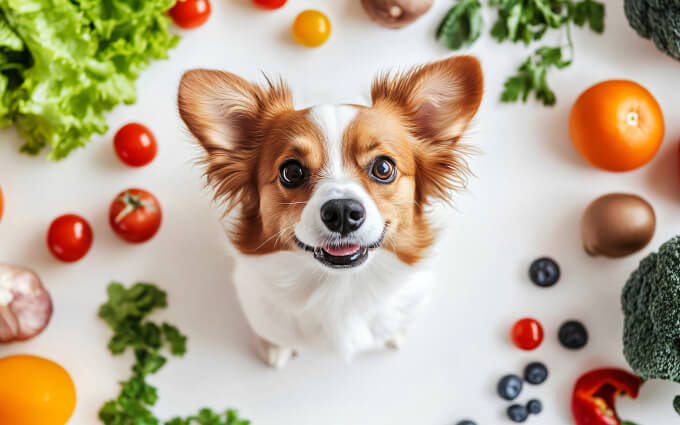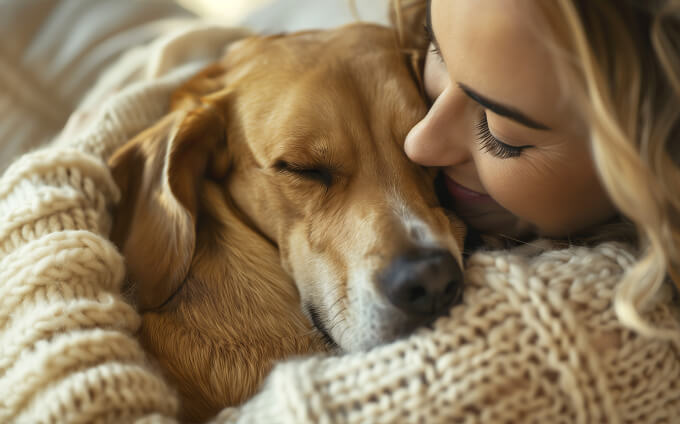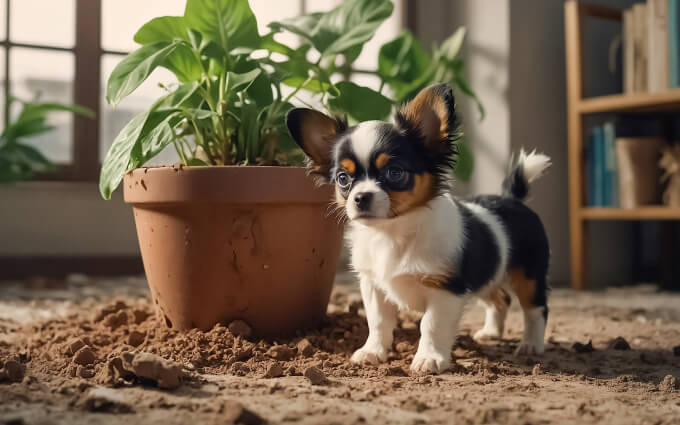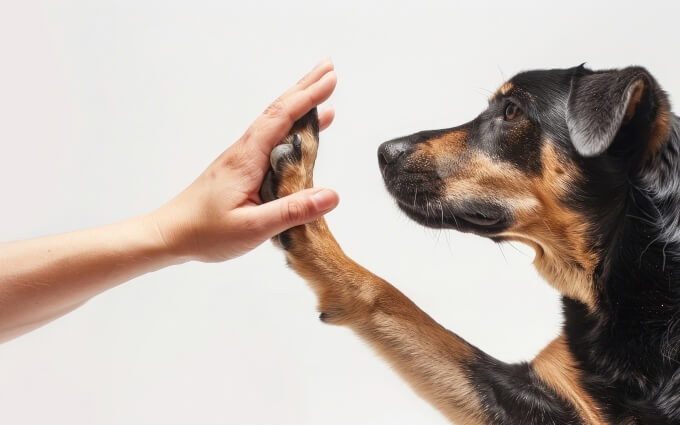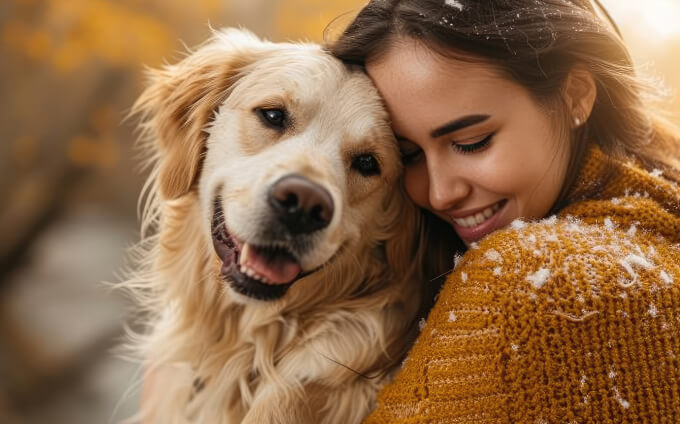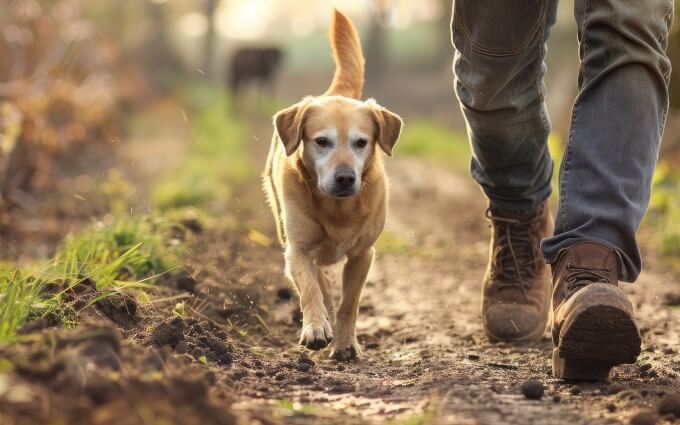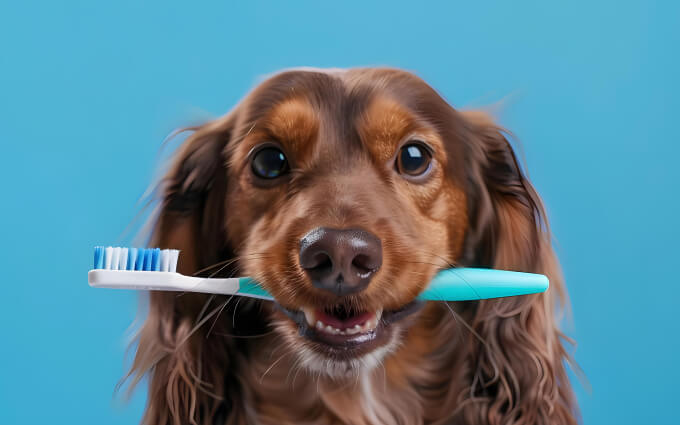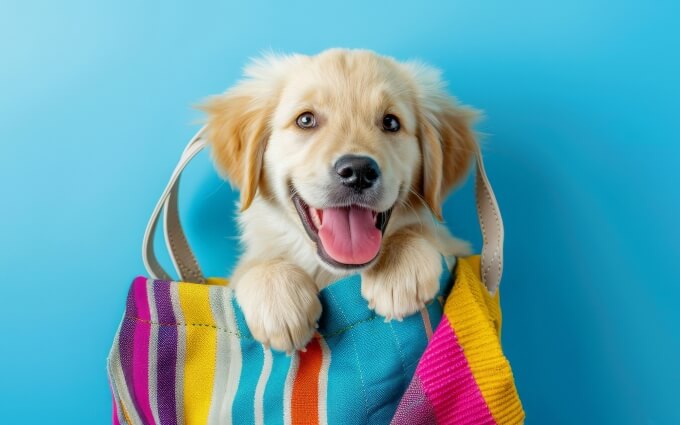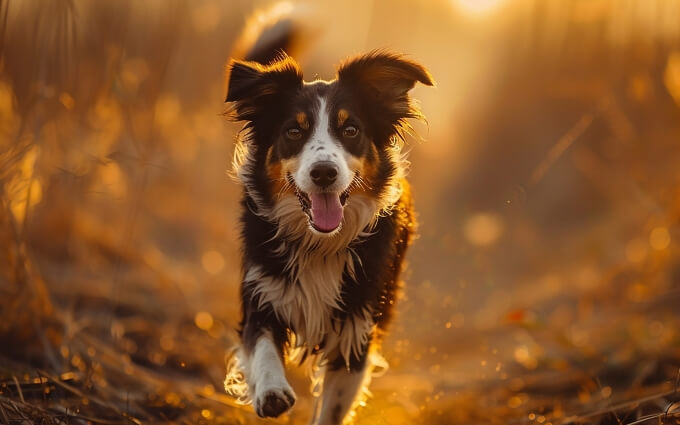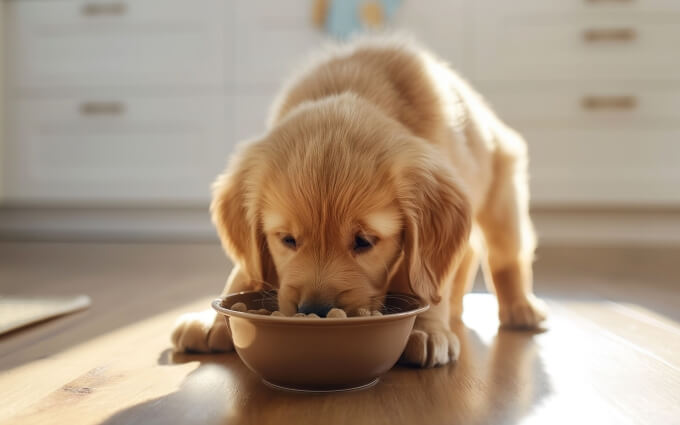- Home
- Puppies & Young dogs
- How to Successfully Socialize a Puppy
How to Successfully Socialize a Puppy
Master the art of puppy socialization with practical tips and engaging activities. From home-based introductions to outdoor adventures, discover how to help your pup grow into a confident and well-adjusted dog.

- 48
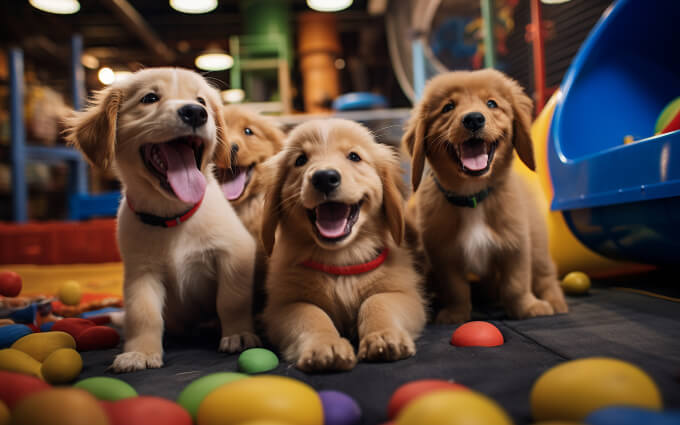
Understanding Puppy Socialization
Welcoming a puppy into your life is an exciting adventure, and one of the most important tasks ahead is socialization. This critical period shapes your puppy's future behavior and confidence. Proper socialization helps prevent fear and aggression, ensuring your pup becomes a well-adjusted adult dog.
What is Socialization?
Socialization involves exposing your puppy to a variety of experiences, including different people, places, sounds, and textures. This process helps your puppy learn to navigate the world confidently and comfortably.
When to Start?
The prime time for socialization is between 3 to 16 weeks of age. During this period, puppies are most receptive to new experiences. However, safe and controlled socialization should continue beyond this window to reinforce positive behavior.
Home-Based Socialization
Starting socialization at home is a great way to introduce your puppy to new stimuli in a safe environment. Begin with everyday household sounds like the vacuum cleaner, dishwasher, and different types of flooring. Allow your puppy to explore at their own pace, rewarding them with treats and praise for calm behavior.
Introducing New People
- Invite friends and family over to meet your puppy.
- Encourage gentle interactions and offer treats to create positive associations.
- Pay attention to your puppy's body language and provide breaks if they seem overwhelmed.
Outdoor Adventures
Once your puppy is vaccinated, it's time to explore the great outdoors. Take your puppy on short, positive outings to different environments like parks, pet-friendly stores, and quiet streets. These experiences help them get accustomed to various sights, sounds, and smells.
Meeting Other Dogs
- Arrange playdates with calm, vaccinated dogs to teach your puppy proper dog-to-dog interactions.
- Enroll in puppy socialization classes where your pup can safely play with other puppies of similar size and temperament.
- Always supervise interactions to ensure they are positive and stress-free.
Handling Fear and Anxiety
It's normal for puppies to experience fear or anxiety during socialization. The key is to recognize the signs and respond appropriately. If your puppy seems scared, take a step back and give them time to adjust. Gradually reintroduce the stimulus at a lower intensity and reward calm behavior.
Signs of Fear
- Tucked tail
- Whining or barking
- Cowering or trying to hide
Building Confidence
Encourage your puppy to explore at their own pace and provide plenty of positive reinforcement. Using treats, praise, and play, you can help your puppy build confidence and associate new experiences with good things.
Continued Socialization
Socialization doesn't end after the initial few months. Continue exposing your puppy to new experiences throughout their first year and beyond. Regularly visit different places, meet new people, and try new activities to keep their social skills sharp.
Advanced Training and Activities
- Enroll in obedience classes to reinforce good behavior and social skills.
- Participate in dog sports or activities that provide mental and physical stimulation.
- Organize regular playdates with other dogs to maintain positive social interactions.
Frequently Asked Questions about Puppy Socialization
Why is puppy socialization important?
Proper socialization helps puppies grow into confident, well-behaved dogs that are comfortable in different environments.
When should I start socializing my puppy?
The best time is between 3 and 14 weeks of age, when puppies are most receptive to new experiences.
How do I socialize my puppy with other dogs?
Arrange safe playdates, puppy classes, or controlled introductions with calm, vaccinated dogs.
Can I socialize my puppy at home?
Yes, you can expose your puppy to household sounds, visitors, and handling to build comfort and trust.
What happens if I don't socialize my puppy?
Poorly socialized puppies may develop fear, anxiety, or aggressive behaviors as they grow older.
- 48
 Marcin Solgaard
Marcin Solgaard
Marcin is a true dog enthusiast! He is always seen with his 9-year-old boxer by his side. Marcin believes that dogs thrive on love, fun and positive experiences. On their daily adventures, people often stop Marcin to ask how his boxer is so happy and well-behaved. He happily shares tips on dog behavior and fun activities to create a happy and harmonious life with your dog.
-
Food & Nutrition
 The Best Foods to Boost Your Dog's Immune System
The Best Foods to Boost Your Dog's Immune SystemTo keep your dog healthy and resilient, fueling their immune system with the right foods is key. In this post, we'll cover the top nutrient-packed foods that can give your dog's immune system the support it needs, helping them fend off illness and stay energetic.
 Marcin SolgaardOct 04, 20249
Marcin SolgaardOct 04, 20249 -
Dog Behavior
 Does My Dog Know I Care About It?
Does My Dog Know I Care About It?Discover the ways your dog shows it knows you care and how you can reinforce that loving bond through simple actions and daily interactions.
 Cassandra DalgaardAug 05, 202444
Cassandra DalgaardAug 05, 202444 -
Puppies & Young dogs
 How to Puppy-Proof Your Home: A Complete Guide
How to Puppy-Proof Your Home: A Complete GuideBringing a new puppy home is thrilling, but keeping them safe means some serious puppy-proofing. This guide covers everything from securing hazardous items to creating a puppy-friendly zone, making your home a safe haven for your curious new companion.
 Michelle TorringOct 10, 202412
Michelle TorringOct 10, 202412 -
Tips & Tricks
 How to Train Your Dog to Give Paw
How to Train Your Dog to Give PawTeaching your dog to give paw is a fun and rewarding experience that strengthens your bond. This guide walks you through the process with tips, tricks, and plenty of paw-sitive reinforcement.
 Marcin SolgaardApr 11, 202441
Marcin SolgaardApr 11, 202441 -
Dog health
 Which Emotions Do Dogs Actually Experience? Understanding Your Dog's Emotions
Which Emotions Do Dogs Actually Experience? Understanding Your Dog's EmotionsDogs experience a variety of basic emotions similar to those of a young child. Learn about the emotions your dog truly feels, how they express them, and what it means for your relationship.
 Cassandra DalgaardJul 30, 202478
Cassandra DalgaardJul 30, 202478 -
Tips & Tricks
 How to Train Your Dog to Walk Off-Leash
How to Train Your Dog to Walk Off-LeashThis guide will walk you through everything you need to know, from essential commands to mastering off-leash walks even in distracting environments
 Marcin SolgaardJul 02, 202451
Marcin SolgaardJul 02, 202451 -
Dog health
 Essential Tips for Caring for Your Dog's Teeth and Gums
Essential Tips for Caring for Your Dog's Teeth and GumsMaintaining your dog's dental health is crucial for their overall well-being. This guide covers various methods to care for your dog's teeth and gums, ensuring they stay healthy and happy.
 Cassandra DalgaardAug 19, 202436
Cassandra DalgaardAug 19, 202436 -
Puppies & Young dogs
 New Puppy? Here's What You Need to Buy
New Puppy? Here's What You Need to BuyPreparing for a new puppy involves gathering essential supplies to ensure they have a comfortable and happy start in their new home. Here's your ultimate shopping list!
 Marcin SolgaardMay 06, 202448
Marcin SolgaardMay 06, 202448 -
Tips & Tricks
 How to Teach Your Dog to Come When Called
How to Teach Your Dog to Come When CalledThis guide walks you through the process, from selecting the right command to dealing with distractions, ensuring a strong recall every time.
 Marcin SolgaardJul 10, 202448
Marcin SolgaardJul 10, 202448 -
Food & Nutrition
 How to Choose the Right Diet for Your Allergic Dog
How to Choose the Right Diet for Your Allergic DogFind out how to select the perfect diet for your dog with allergies. Learn about elimination diets, hypoallergenic foods, and the best ingredients to keep your furry friend healthy and happy.
 Marcin SolgaardJun 09, 202427
Marcin SolgaardJun 09, 202427

